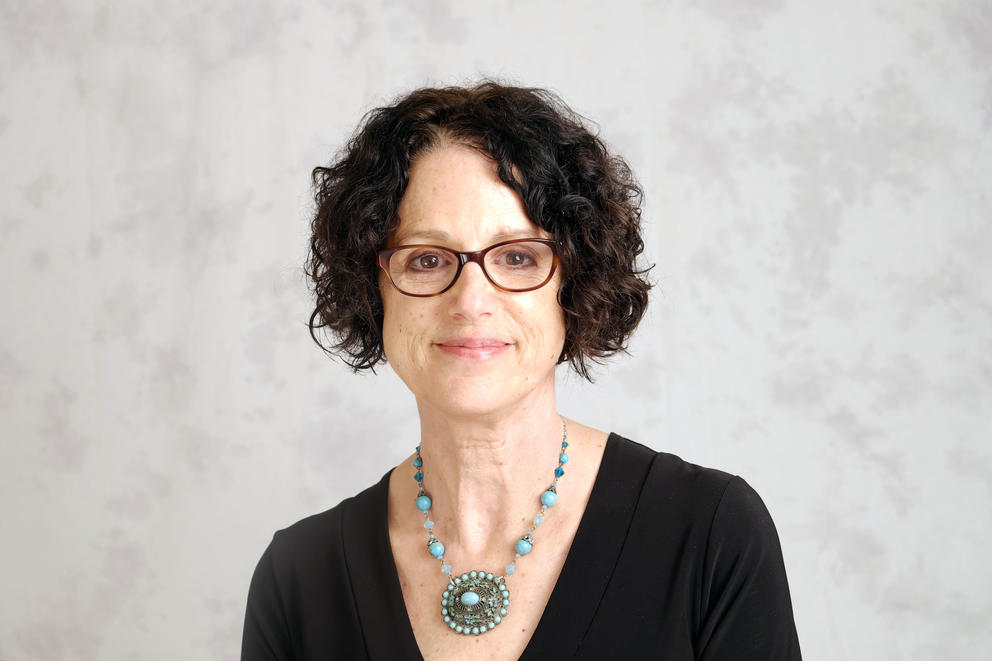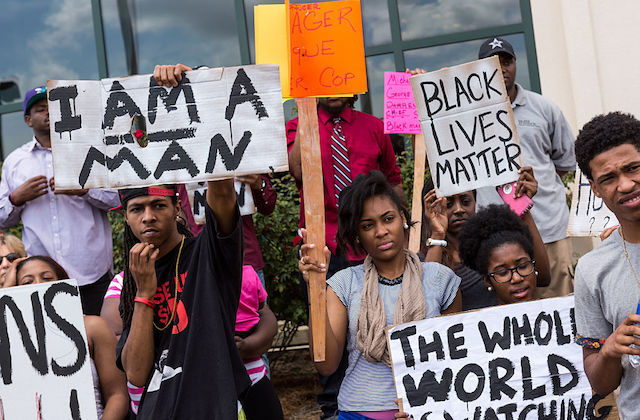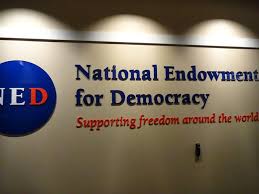
As America grapples with the aftermath of the horrific and tragic death of George Floyd, “systemic racism” is a phrase on everyone’s mind. At my alma mater, the University of Pennsylvania, President Amy Gutman wrote that her university intends to “establish a new fund, intended to encourage students, faculty, and staff to design and implement pilot projects based on innovative research that will advance our aim of a more inclusive university and community.” As part of this effort, UPenn seeks “to seed impactful projects, grounded in outstanding Penn research, that will offer new ideas to enhance the quality of life for members of our community now and in the future.”
"[R]acism is viewed as a defect in the DNA of society itself, perpetually self-replicating like a dangerous cancer."
“Initially,” she wrote, “project proposals are to be related to one or more of the following challenges: (1) Eradicating or reducing systemic racism; (2) Achieving educational equity; and (3) Reducing health disparities based on race, gender, sexual orientation, and/or social determinants of health.” So far, so good. She will encounter no opposition from me, or any reasonable person, in the attempt to eradicate racism, achieve education equity, and reduce health disparities.
As is so often the case in life, however, disputes arise not over the ends, but over means. Which takes me to the phrase “systemic racism.” In the last few decades, the academy as well as the world of “social justice” activism, has undergone a revolution in how it views the nature of racism and how to solve it. Racism is no longer about consciously, or even unconsciously, held attitudes and beliefs that result in explicit discriminatory behavior at the individual level or at the institutional level of legislation, courts, and university curricula. No, racism is society itself. That is, racism is viewed as a defect in the DNA of society itself, perpetually self-replicating like a dangerous cancer.
In other words, it is systemic. Not simply, and accurately, in the sense that there are deep structural inequalities that have resulted in black Americans dying of COVID-19 at three times the rate of white people, and whites enjoying lower unemployment rates or higher median income than blacks. All of this is categorically and incontrovertibly true. But while the academy and the activists rightly and consistently point to these disparities in outcomes, they also claim that we will never make progress in reducing these inequalities if we do not address the “systemic” ideologies and discourses of Whiteness.
Four years ago, in the wake of Donald Trump’s initial refusal to disavow David Duke, I wrote about how the undercurrent of racism in America is alive and well in the ways we talk about race behind the scenes, either explicitly or implicitly. Thus, I have no interest in denying that racial tensions are latent in the conversations and thoughts we have each day throughout our lives. In the academy and in circles of professional activism, however, pointing this out is barely a starting point. They have something far more insidious in mind. For them, white people are not merely blind, lazy, callous, or cavalier in how they think and talk about race. They are socially constructed to be so. It is not a choice. It is an essential part of how they have been coded by society.
To be white is to be a racist.
The literature on this is too vast to cover here. But if you want to suffer through one of the worst examples of this kind of thinking, go here and read through the PhD dissertation of Robin DiAngelo, the inventor of the widely popular theory of white fragility and whose book has shot up to the top of the Amazon and New York Times bestselling book lists. DiAngelo’s dissertation foreshadows much of her work in anti-racist activism and disrupting the supposed discourses of Whiteness. It also provides a comprehensive overview of the Whiteness literature as of 2004.
The central focus of the dissertation, and virtually all of DiAngelo’s work, is that the way white people think and talk about racism (especially white progressives) is unwittingly but inescapably and incessantly offensive to people of color in a way that perpetually gives rebirth to racial inequality. White people, in other words, cannot help it, because that is how they have been positioned by society, as if part of a hideous joke designed by Dr. Robert Ford in the hit HBO show Westworld. It is not just those who refuse to get on board with the “social justice” crusade. White progressives, in fact, are the most complicit because they are sure the problem is not them. As DiAngelo says (see at 13:00), white progressives “land the most harshly on people of color day in and day out.”
Never mind that many studies show that the research does not support the idea that “implicit bias” is well understood, that it predicts behavior, or that it contributes extensively to racial inequality. Even if true, Whiteness Studies does not have high regard for empirical studies that rely on falsification methodologies. Indeed, as one paper writes, “many critical race scholars are fundamentally skeptical of (if not simply opposed to) quantitative data and techniques to begin with.”
Instead, Whiteness Studies plows ahead with vague, but rhetorically powerful, narratives about the ideologies and discourses of Whiteness which underlie the “system” of white privilege which underlies racism. Never mind conceptual ambiguities and limitations in the concept of white privilege, such as Lewis Gordon’s point that “an insidious dimension of the white-privilege argument emerges” in which we condemn “whites for possessing, in the concrete, features of contemporary life that should be available to all”—in other words, a lot of what is perceived as “privilege” consists not of advantages that should be taken away from white people, but rights that should be expanded to everyone. What matters is actionable politics that disrupts the way white people talk in common everyday conversation because, somehow, this is the key to undoing all the inequalities that plague society—mass incarceration, health disparities, and the like.
If it sounds like we must simply learn the art of semantic etiquette, you are only half right. Yes, white people must learn how the ways they speak (and act) unwittingly offend people of color. No, that is not the end of it. The real crux of the matter is to recode the mind in a way that sees Whiteness not as a set of benign norms, but as a fundamental positioning of whites as the supreme center of society, which necessarily and invariably comes at the expense of people of color.
Political correctness, then, is not an assault on free speech. It is an assault on Whiteness, or more specifically, the ways that white people talk and act in ways that sustain systemic racial inequality. White people must learn to undergo constant struggle sessions (see 13:45) in which they voluntarily put on their detective caps seeking to find any semblance of “white privilege” that they can root out of their conscious and unconscious identities. As UC Berkeley professor Ian Haney Lopez writes, “[i]f the racial systems of meaning that tie Whites and non-Whites together into hierarchies of social worth are to be brought down, it will only be through choice and struggle.”
Lopez points to another vital thesis of Whiteness Studies—that Whiteness is defined in relation to Blackness. It is a relational, but core, aspect of existence for white people, empty of content except for how it positions them in a hierarchy of social relations defined by racial inequality. The reason for attacking discourse is that discourse is the decisive means by which this hierarchy remains in place. Society, then, is racist to the core, defined by hierarchical social relations deeply rooted in Whiteness and white privilege, all of which manifest through ongoing discourse.
No one should deny, of course, that racism has been viciously endemic in America’s past. For Whiteness scholars, however, there has been little to no improvement. Racism is as “systemic” as ever, constantly evolving and replicating to make sure it stays alive. Sure, we have civil rights, a massive improvement in attitudes about race, a woke revolution, and so on. But none of this comes close to the reckoning we must make with Whiteness and white privilege, and even if this reckoning took place in the most perfect way imaginable, one wonders whether Whiteness scholars would still be satisfied.
Perpetual cynicism, however, will not stop Whiteness scholars from carrying on with their crusade, and it seems that most of our institutions, however irredeemable they may be in the eyes of Whiteness scholars like Robin DiAngelo, are getting on board. Hence the statement by Amy Gutman above. Hence, as America simmers, corporate America racks up the retweets. Hence, Zoom lunch discussions at universities to discuss Robin DiAngelo’s book on “white fragility.” Hence, book readings like this one for students, faculty, and staff at UPenn’s Department of Social Policy and Practice to stimulate “[d]ialogue around race, intersectionality, and social justice,” which of course meant reading DiAngelo’s book White Fragility in addition to Charlene A. Carruthers Unapologetic: A Black, Queer, and Feminist Mandate for Radical Movements.
Perhaps the only surprise, however, is that we should be surprised at all. Despite the rise of a vastly flawed theory of white fragility in recent years, and the development of critical race theory and Whiteness Studies in recent decades, this postmodern cynicism and skepticism has been brewing for a half-century. James Lindsay and Helen Pluckrose provide an impressively thorough overview of this history in their upcoming book Cynical Theories, but examples abound.
Let me end with an illustration. In her dissertation, DiAngelo examines the discourse of white people in terms of “moves” of Whiteness. A “move” is “a discursive (‘linguistic’ strategy used to support or challenge current power relations (moves can range from eye-rolling and interrupting a speaker, to silence, debate or invoking dominant ideologies).” One such move is silence. Suppose you are a participant in an anti-racist session with DiAngelo and you go so far as to acknowledge your own Whiteness and that this makes you racist—because to be white is to be in a position of social power. That is, racism = “prejudice + power” (and don’t object that you can be white and not be prejudiced because that is impossible—as DiAngelo claims, there is no objective, neutral reality and all people have racial bias).
Great, says DiAngelo, but if you stop there, i.e. remain silent the rest of the way, you are complicit in racism. If you tend to prefer one-on-one interactions as opposed to group interactions, you are failing to acknowledge that people of color are constantly forced to interact in group settings where they feel marginalized, and in failing to do so, you are not reckoning with white privilege. You are complicit in racism. What if you are an introvert or shy? Same type of response.
In short, join the crusade. If you are white, then you are a racist. Do not ask questions. Liberate yourself from your white privilege and your complicity in “systemic racism.” Dismantle Whiteness. If you think I am exaggerating the case, I invite you to read DiAngelo’s dissertation for yourself.

